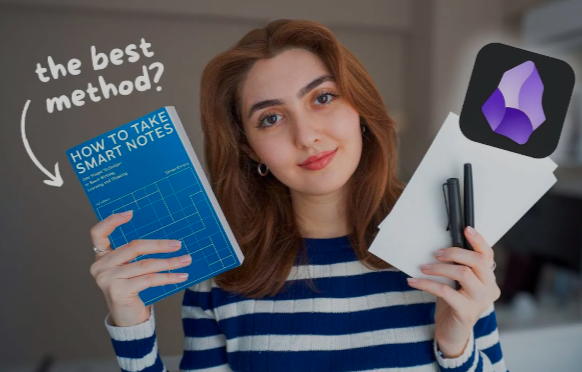Taking notes has always been a key part of learning, but in 2025, smarter note-taking goes beyond just writing things down. With the rise of digital tools and personalized learning methods, students now have more ways than ever to make their notes work harder for them. Whether you’re in high school, college, or pursuing online education, writing smarter notes can help you study more efficiently, retain information longer, and succeed in your academic goals.
Understand the Purpose of Your Notes
Smarter note-taking starts with clarity. Before writing, ask yourself: Why am I taking notes? Are you preparing for a test, summarizing a lecture, or organizing your thoughts for a project? When you understand the purpose, it becomes easier to filter out distractions and focus on what’s essential.
Use the Right Format for Your Learning Style
Not everyone learns the same way. In 2025, many students are turning to formats that match their personal learning preferences:
Visual learners benefit from mind maps, charts, and color coding.
Auditory learners may prefer recording audio notes or using speech-to-text apps.
Kinesthetic learners might favor writing by hand or using digital stylus tools on tablets to stay more engaged.
Choosing the right format helps reinforce understanding and recall.
Try Digital Tools That Enhance Your Notes
Modern note-taking apps do more than just store text. Many include AI-powered suggestions, searchable tags, and voice-to-text features. Tools like Notion, OneNote, or Evernote allow students to integrate multimedia, organize topics, and sync across devices—so their notes are always accessible. Some platforms even allow real-time collaboration for group projects.
Practice Active Note-Taking
Smart note-takers don’t just transcribe—they think while they write. Active note-taking involves summarizing ideas in your own words, asking questions, and connecting new concepts to what you already know. The Cornell Method, for example, encourages writing cues and summaries alongside main notes to reinforce learning.
Keep Your Notes Organized
In 2025, organization is key to managing information overload. Create sections or folders by subject, topic, or unit. Use clear headings, bullet points, and consistent formatting to make reviewing faster and more effective. Color coding or using bold text for keywords can help highlight what’s important.
Reflect and Review Regularly
Smart notes are living documents. Set aside time each week to review your notes, fill in gaps, and test your understanding. Spaced repetition—reviewing material over increasing intervals—is a proven strategy to strengthen memory. Some digital apps even offer flashcard integration based on your notes.
Customize Notes for Different Subjects
Different subjects require different approaches. For science, diagrams and step-by-step processes may be useful. For literature, quotes and interpretations matter. Tailoring your notes to each subject’s unique demands helps maximize their usefulness when it’s time to study.
Embrace Personal Touches
Don’t be afraid to add your own flair—whether it’s humor, doodles, or symbols that make sense to you. Personalized notes are more enjoyable to revisit and can make studying less stressful.
Conclusion
Writing smarter notes in 2025 is about combining thoughtful strategies with the right tools. By understanding your learning style, staying organized, and using technology wisely, you can turn your notes into a powerful learning resource. Smarter notes mean smarter study sessions—and better results.














